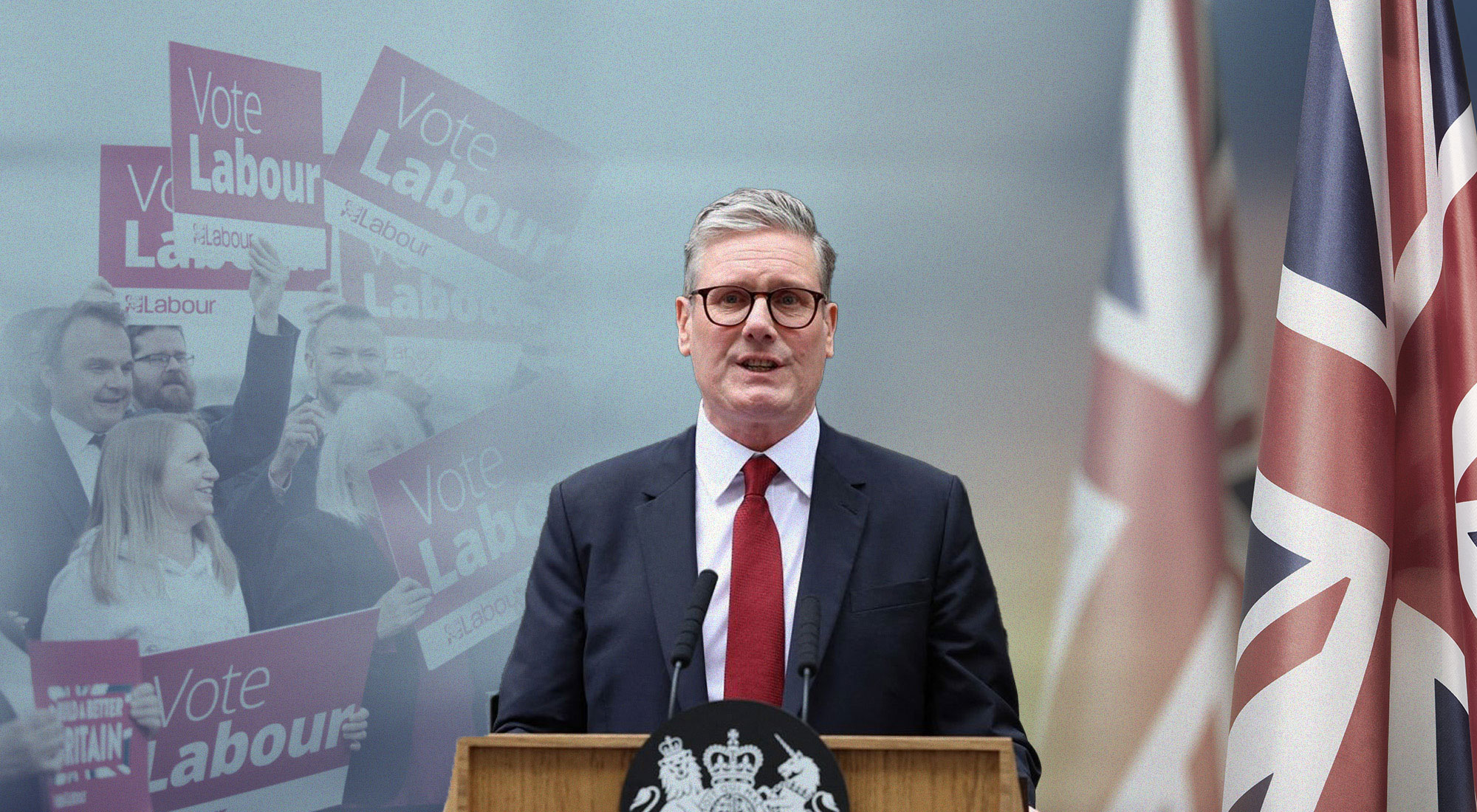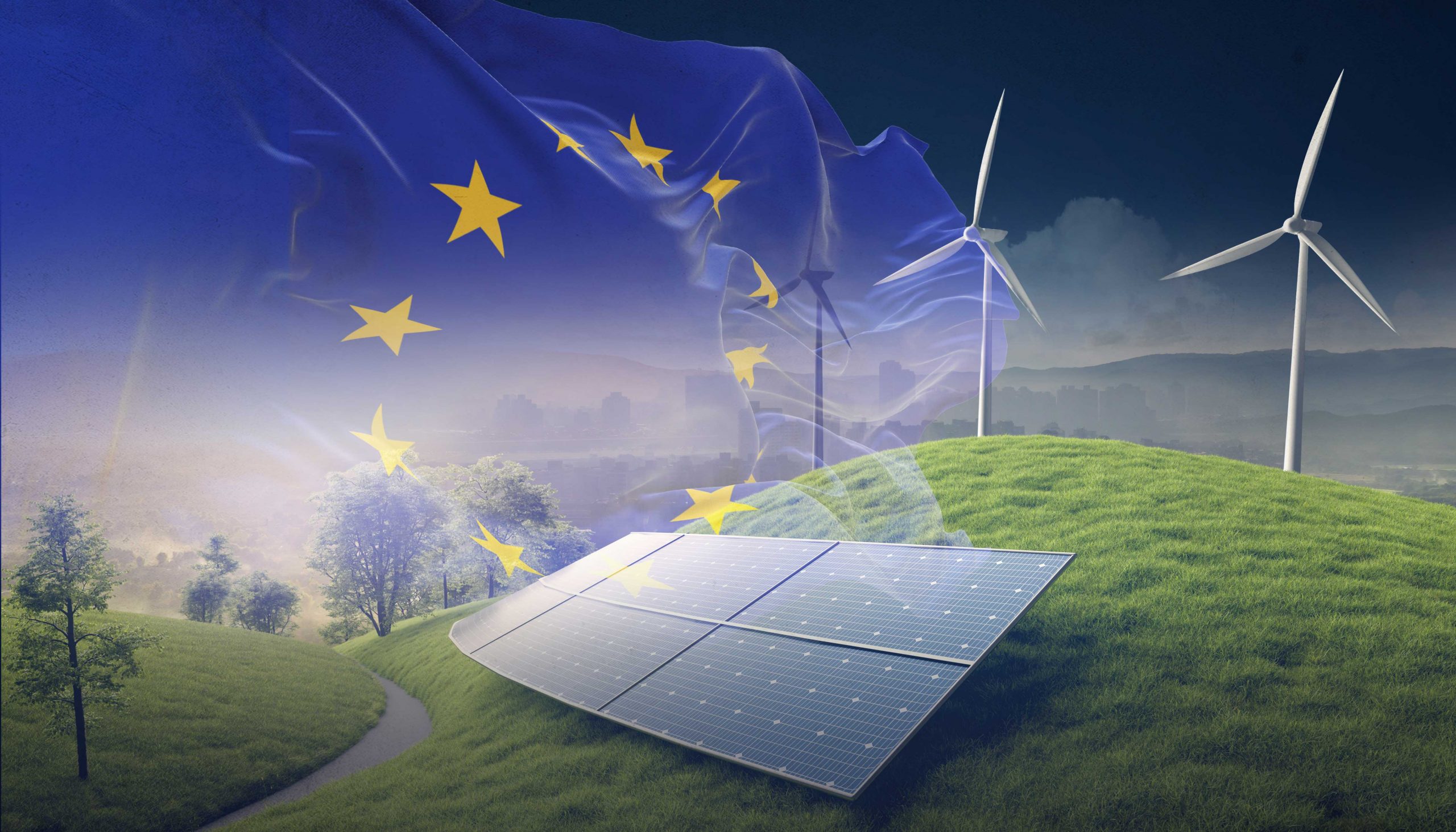The Labour Party’s resounding victory in the general elections on 4 July 2024, has ushered in a new chapter for the UK. The landslide win marks a significant turnaround for the Labour Party, which suffered its worst electoral loss since the 1930s in the 2019 elections. The recent victory highlights a significant shift in the political landscape, setting the stage for new policies and reforms under Labour’s leadership.
The new Prime Minister, Keir Starmer, who was elected as the head of the Labour Party in 2020, remains determined to restore hope and confidence within the UK. Under his leadership, Labour seeks to address the widespread frustrations that have grown over the Conservatives’ long-standing status quo and 14-year power grip on the country. Their decisive win was a reflection not necessarily of a Labour victory, but rather an indication of Conservative defeat.
Sixty-one-year-old Keir Rodney Starmer has come a long way from his legal background to hold the top political position in the nation. Before joining the political arena, Starmer served as a human rights lawyer early in his career and later went on to lead the Crown Prosecution Service of the United Kingdom as Director of Public Prosecutions.[1] Although Starmer officially entered politics relatively late at the age of 52, he was chosen to represent Holborn and St. Pancras as a Member of Parliament during the 2015 general election.[2]
In 2020, Starmer succeeded Jeremy Corbyn as head of the Labour Party. After a period of internal strife and electoral setbacks, the centerpiece of his leadership candidacy was bringing the party back to the center of British politics, increasing its appeal to voters and restoring its reputation.[3]
One of Starmer’s main electoral pledges as a prime minister candidate was to give public services top priority. His agenda includes abolishing the controversial immigration policy of sending asylum seekers to Rwanda, ensuring sufficient funding and enhancements for the NHS, forging new relations with the European Union, addressing anti-social behavior, increasing financial support for educational institutions, and, most importantly, boosting economic growth.[4]
Sunak’s motives in calling for early elections
Former Prime Minister Rishi Sunak’s unexpected decision in May to schedule the UK’s general elections for 4 July, deviating from the originally planned fall elections, was motivated by economic, political, and strategic considerations. Sunak aimed to capitalize on favorable economic conditions, pre-empt opposition strategies, manage internal party dynamics, and secure a fresh mandate to navigate ongoing challenges. However, his strategy backfired. After enduring 14 years of economic hardship, Brexit-related turmoil, and internal Conservative party divisions, the election results indicated that the British electorate sought to send a clear message by removing the Conservatives from power.
Economic Factors
The state of economic development in the UK has played a major role in Sunak’s decision to announce early elections. At the time of his announcement, Sunak reasoned that the economic situation of the country was favorable, where the country’s inflation was stabilized and improving, unemployment rates were decreasing, and most importantly, economic growth was returning to normal, although limited. With these advantageous circumstances, Sunak assumed that he could swing public support back and increase British confidence in his leadership and the Conservative Party. He believed that if he delayed the elections to fall, it would leave his administration vulnerable to any possible economic downturn or force it to implement unpopular austerity measures, which may weaken support from the general public.
Political Factors
Sunak advocated for early elections to address pressing political issues and quell internal turmoil within his party. Over recent years, the Conservative Party has grappled with intense internal discord, marked by scandals and frequent changes in leadership. Sunak sought to exhibit strong leadership, resetting the political agenda to restore public trust. Additionally, he aimed to highlight economic achievements, such as significant drops in inflation, as evidence of successful policies under the Conservative Party’s stewardship. Sunak’s goal was to portray the Conservative Party as a stable and decisive force capable of guiding the country through turbulent times.
Strategical Factors
Sunak strategically intended to surprise his opposing parties by announcing an early election. He expedited the elections by several months to impede the Labour Party’s and other competitors’ capacity to mobilize supporters, generate money, and explain their platforms to voters. Sunak intended to do this to build on the Conservatives’ advantage of being in office and sustain any momentum from recent policy victories or encouraging trends. The purpose of this calculated scheduling was also to reduce the effect of any impending political scandals or unfavorable events that could occur in the upcoming months.
July 2024 election results
Following the Conservative Party’s significant losses, Rishi Sunak resigned as Prime Minister in response to the resounding rebuke from the electorate. While the Labour Party picked up 412 seats in the Parliament’s 650-seat House of Commons, Sunak’s Conservative Party held onto 121, including his own North Yorkshire seat. In his resignation speech conceding to Starmer, Sunak apologized to his party, including 11 of his cabinet ministers as well as former PM Liz Truss, who failed to secure enough votes to return as an MP, stating he takes a sobering responsibility for the party’s loss.[5]
The Conservative Party has remained largely unpopular, experiencing major electoral setbacks in local elections earlier this year and polling nearly 20 points behind the Labour Party before the general election. Anticipating a potential defeat, nearly 80 Conservative MPs chose to step down, marking a post-war record for such an exodus. This mass resignation occurred in the lead-up to the early election called by then-Prime Minister Sunak, further exacerbating the party’s struggles and contributing to the Labour Party’s landslide victory.[6]
Voter turnout in the 2024 UK election hit a record low of 60%, making it the second-lowest participation rate since 1885. The only election with a lower turnout was in 2001, which saw a participation rate of 59%.[7] Furthermore, the election results were highly disproportionate in terms of the proportion of seats won by Labour compared to the percentage of the popular vote they received. Labour secured 63% of the parliamentary seats despite only receiving 33.8% of the total votes cast. According to the Electoral Reform Society, this significant discrepancy highlights a lack of proportional representation, where the distribution of seats does not accurately reflect the voters’ preferences.[8]
The Labour Party campaigned on six core policies to bring about crucially needed reforms in Britain. Starmer noted in May, that although there is no “quick fix”[9] to resolve the social and economic disorder created by the Conservative Party, he urged the public to view the principal commitments set forth in his party’s Manifesto[10] as “a down payment on change.”[11]
The Labour Manifesto outlines the party’s six initial steps for change, which include the following:
- Deliver economic stability, the foundation of economic growth, while ensuring taxes, inflation, and mortgages remain low and affordable.
- Cut NHS waiting time by adding 40,000 additional appointments each week.
- Launch a new border security command to aid in deterring migrant boats from attempting to cross the English Channel.
- A focus on clean, domestically produced green energy to reduce the UK’s reliance on imports while cutting energy costs for consumers.
- A crackdown on anti-social behavior with a return of law and order to the UK’s streets, which includes rebuilding trust between the police and the public they protect.
- A commitment to recruit 6,500 new teachers to ensure all children have access to quality education—a policy funded by removing tax breaks for the UK’s private schools.
An Unravelling of the Tories
David Cameron’s victory in the 2010 election marked the end of Labour’s 13-year hold on power, shifting the political landscape and bringing the Conservative Party back into government. The Conservatives have since remained in power up until the recent 2024 election. Elected to lead the country out of the aftermath of the 2008-2009 financial crisis, Cameron implemented substantial cuts to reduce the UK’s significant budget deficit. According to the UK Office for Budget Responsibility, these measures constituted “one of the biggest deficit reduction programmes seen in any advanced economy since World War II.”[12]
Despite Cameron winning re-election in 2015, the former PM stepped down the following year after the UK voted to leave the European Union in the June 2016 referendum. Cameron had publicly opposed Brexit and was in favor of remaining in a ‘reformed’ EU.[13]
His successor, Theresa May, who served as the Home Secretary from May 2010 to July 2016, was also forced to step down as a result of her inability to secure parliamentary approval for her proposed Brexit deal. May’s controversial Irish “backstop,” which ensured an open border between Northern Ireland and the Republic of Ireland, remained a sticking-point issue, leading to the rejection of the deal by MPs.[14]
Boris Johnson, who followed May, campaigned on a “get Brexit done” platform, resulting in a landslide win with Johnson ultimately securing the UK’s exodus from the EU on 31 January 2020. Johnson’s freewheeling, theatrical demeanor ultimately led to his downfall as a result of the infamous ‘partygate’ scandal, which involved allegations of misleading Parliament over his attendance at private parties held during the COVID-19 pandemic despite strict government-imposed lockdowns.
Former Foreign Secretary Liz Truss succeeded Johnson but served for only 45 days, the shortest premiership in UK history. Truss’s radical economic agenda paved the way for debt-funded tax cuts for high-income earners along—the largest tax cuts in half a century. The financial market instability gave way for the pound’s value against the dollar to spiral, resulting in a loss of investor confidence—all in less than 30 days.[15] Given the turbulent financial outcomes, Truss announced her resignation in October 2022, stating that although she was elected “on a mandate to cut taxes and boost economic growth”[16] given the market reactions, she acknowledged her inability to deliver on such promises.
Rishi Sunak, who previously held the position of Chancellor of the Exchequer, replaced Truss in October 2022 and managed to achieve a slight economic recovery. However, the culmination of multiple economic and international crises, including global inflation, Russia’s war in Ukraine, and the impact of Brexit, severely impacted the UK’s economy. According to the National Institute of Economic and Social Research (NIESR), the UK’s “real GDP is some 2-3 percent lower due to Brexit, compared to a scenario where the United Kingdom retained EU membership,” equivalent to a per capita loss of nearly £850 (USD$1,062.50). [17]
Navigating Economic Challenges
Since the financial crisis of 2008–2009, the UK has experienced slow income and productivity growth, similar to most other developed countries. However, on a per capita basis, the country’s economic growth has lagged behind that of the U.S., the EU27, and Germany during this period, despite being the sixth-largest economy in the world.[18] According to a recent study published by the Institute for Public Policy Research (IPPR), for the last three years, the UK has maintained the lowest business investment compared to all other G7 members, and ranks 28th out of 31 OECD countries.[19]
Following the Labour Party’s landslide victory, Rachel Reeves, a former Bank of England economist, was appointed as Britain’s first female Treasury Chief. In her inaugural speech, Reeves emphasized that stimulating economic growth would be the government’s top priority. She outlined plans to deregulate and eliminate bureaucratic red tape to attract investors and businesses, aiming to reestablish Britain as a safe and appealing investment destination.[20]
Starmer displayed similar sentiment during his inaugural speech, reassuring the public “brick by brick” that his government will “rebuild the infrastructure of opportunity,” with the aim of providing financial security for millions of working-class Britons.[21] Campaigning as the “party of wealth creation,”[22] Starmer has remained committed to developing sustainable economic growth, with private investments and a modernized industrial strategy playing a central role. Likewise, Reeves has committed to a strict, self-imposed spending rule, stating that “the current budget must move into balance so that day-to-day costs are met by revenues.”[23] Additionally, she aims to reduce the country’s debt as a percentage of GDP within a five-year timeline to ease speculation within financial markets.
Austerity cuts
The UK’s social safety net comprises a range of welfare programs designed to support individuals and families in need. Key components include universal credit—a monthly stipend assisting those who are out of work or survive on low incomes; the National Health Service (NHS), the publicly funded healthcare system; state pensions for retirees; and various benefits for children, housing, and disabilities. Concerns over budget reductions and austerity measures have resulted in insufficient funding and resources being allocated to the UK’s social welfare programs. Reforms to the NHS have resulted in nearly 7.5 million people remaining on waitlists for non-emergency treatments due to understaffed medical facilities. [24]
Former Prime Minister Sunak faced harsh criticism for his stance on austerity programs, particularly when he introduced the next generation of welfare reforms earlier this year. These reforms included tightening the criteria for disability benefits, overhauling the fit note system, and modifying benefit eligibility and assessment processes to encourage more people to return to the workforce. Sunak expressed concerns about benefits becoming a “lifestyle choice,” emphasizing the need for a more sustainable and fair welfare system that promotes employment and self-sufficiency, while his critics claimed his plans ‘lacked compassion.’[25]
Prime Minister Keir Starmer’s government faces a multitude of external and costly challenges, including maintaining support for Ukraine amidst ongoing geopolitical tensions. Economic difficulties have reduced the UK government’s capacity to enhance austerity programs without increasing taxes—an approach Starmer has expressly opposed.[26] While the new health secretary, Wes Streeting, admits the NHS remains “broken” and cannot be fixed overnight,[27] fiscal constraints potentially hinder the government’s ability to improve social and public services, presenting a significant obstacle in balancing economic stability with addressing the needs of the population.
Foreign Policy
In their first phone conversation following the election, U.S. President Joe Biden and Prime Minister Starmer reaffirmed their commitment to deepening the special relationship the U.S. and UK share, as well as further promoting cooperation in areas of shared interest, while reiterating their unwavering support for Ukraine.[28] Since the start of the war nearly two and a half years ago, the U.S. has provided the highest bilateral commitment to Ukraine ($75.5 billion), while the UK has provided the third highest globally ($17.2 billion).[29]
In response to continuing geopolitical tensions in Europe as a result of the war in Ukraine, along with growing concerns over the rise of hybrid warfare, including cyberattacks and online disinformation campaigns by malign actors, the Labour Party campaigned on a commitment to conduct a Strategic Defense Review within its first year in office. This review aims to ensure the country remains secure and resilient against evolving threats.[30]
Although foreign and defense policy were not a top priority on the campaign trail, Starmer reassured his global partners that the UK will remain dedicated to spending 2.5% of GDP on defense (half a point higher than the 2% NATO commitment), with one caveat: he has insisted that before living up to his “ironclad” 2.5% promise, an evaluation of the completed defense review must be conducted to ensure compliance with the government’s strict “fiscal rules” on spending and borrowing.[31]
Hours after being sworn into office, the party’s new Foreign Secretary, David Lammy, made a swift visit to Germany with the intent of resetting the UK’s relationship with its “European friends and allies.”[32] Following Brexit, relations between the EU and the UK have remained complex and evolving. Likewise, with the uncertainty swirling around the upcoming elections in the U.S. this November—an election that will have explicit global ramifications despite the outcome—the UK must remain poised to take center stage and once again reclaim its position as a prominent actor on the international stage.[33]
An inclusive and greener future
The July 2024 election resulted in a record number of female MPs elected as well as the largest increase of minority ethnic MPs being appointed—equal to 14% of all new incoming members,[34] signaling a significant shift towards greater diversity and representation in the UK Parliament. This outcome reflects the electorate’s growing emphasis on inclusivity and equal representation.
The party also aims to implement a bold new energy policy through the introduction of a publicly owned clean energy company named “Great British Energy.” The objective aims to decrease the UK’s reliance on imported energy by investing in domestic sources, which will in turn create thousands of jobs, decrease power bills, and transform the UK into a clean energy superpower, with the goal of generating 100% green energy by 2030.[35]
PM Starmer: new beginnings?
Despite his recent electoral win, nearly half of the UK public remains unfamiliar with Starmer and his proposed policies. A recent YouGov poll revealed that 49% of Britons are unaware of his political ideologies. As a result, Starmer faces a significant uphill PR battle, as the same poll found that 49% of respondents perceive him as “untrustworthy,” 46% consider him “weak,” and 47% find him “dislikeable.”[36] These unfounded first perceptions highlight the considerable challenges Starmer and his government face in rebuilding trust among the electorate.
Starmer’s vision focuses on implementing comprehensive reforms, prioritizing economic stability, improving public services, and fostering social justice. His administration aims to tackle pressing issues such as inequality, healthcare, education, and climate change, promising a renewed commitment to the welfare and prosperity of all UK citizens. This shift in leadership marks a significant departure from Sunak’s policies, with Starmer’s approach resonating with an electorate that remains eager for substantial and positive change, despite their skepticism and lack of trust in government.
The recent low voter turnout and a lack of public enthusiasm remain indicative of the level of cynicism UK voters harbor towards mainstream politics, along with their distrust in government. Longstanding Conservative rule has led to the “dismantling” of the country and the abandonment of its once loyal supporters. Upon arriving at Downing Street in his first official speech to the UK as the country’s newest PM, Starmer’s tone remained somber, reflecting the magnitude of the challenges that lie ahead.
Prime Minister Starmer emphasized the importance of public service, stating his primary goal is to rebuild trust and establish a government that truly serves the people. Acknowledging the nation remains demoralized, he expressed a desire to restore respect, appealing to all citizens, including those who did not vote for him. Starmer reminded the public that politicians can be a “force for good” and said he remains committed to serving everyone. This inclusive approach to politics, which has eroded in recent years, is a welcomed sentiment in the UK’s current political climate.
Under Labour leadership, Starmer and his cabinet are poised to rebuild the country to ensure Britain has reliable access to public services along with the potential to prosper under stable economic conditions. The Labour Party achieved victory by encouraging the electorate to turn the page on Conservative rule through a commitment to refocus politics on serving the needs and interests of the public rather than on partisan goals or personal gains. Starmer’s message throughout the campaign, which led his party to triumph, underscored that despite the understandable pessimism within the electorate, politics can make a difference and that decline is not inevitable.
[1] Gilchrist, K., “Who is Labour’s Keir Starmer, the new leader of Britain?,” CNBC, July 4, 2024, https://www.cnbc.com/2024/07/04/who-is-labours-keir-starmer-the-likely-new-leader-of-britain.html.
[2] Lawless, J., “He’s derided as dull but Keir Starmer becomes UK Prime Minister with a sensational victory,” AP News, July 5, 2024, https://apnews.com/article/uk-election-keir-starmer-profile-labour-e98d16e0810273f6041b61747e084aae.
[3] Andrews, F., “Who is Britain’s new Prime Minister Keir Starmer, ushered to power by his Labour Party’s election landslide?,” CBS News, July 5, 2024, https://www.cbsnews.com/news/uk-election-2024-results-who-is-keir-starmer/.
[4] Webber, E., “6 things UK Prime Minister Keir Starmer wants to fix in his first month,” Politico, July 8, 2024, https://www.politico.eu/article/uk-prime-minister-keir-starmer-speech-win-jobs-immigration-government-reform/#:~:text=Starmer%2C%20elected%20after%20a%20landslide.
[5] The Telegraph, “Rishi Sunak: ‘I take responsibility for the loss.. I am sorry’” | UK election 2024 [Video] YouTube, July 5, 2024, https://www.youtube.com/watch?v=W290Iupgdeg.
[6] Hennessey, T., “Nearly 80 Tory MPs quitting ahead of General Election in post-war record exodus,” Evening Standard, May 25, 2024, https://www.standard.co.uk/news/politics/craig-mackinlay-mps-john-redwood-bob-stewart-michael-gove-b1160125.html.
[7] “General election 2024 in maps and charts,” BBC News, July 9, 2024, https://www.bbc.com/news/articles/c4nglegege1o.
[8] Goodier, M., “Rise of smaller parties: Key takeaways from voting patterns in UK election,” The Guardian, July 7, 2024, https://www.theguardian.com/politics/article/2024/jul/07/key-takeaways-voting-patterns-uk-general-election-2024.
[9] McDonald, A., “Heir to Blair? Keir Starmer’s 6 big pledges rated,” Politico, May 16, 2024, https://www.politico.eu/article/heir-to-blair-keir-starmer-pledges-united-kingdom-labour-election/
[10] Labour Party, “First steps for change,” Labour, https://labour.org.uk/change/first-steps-for-change/ (Retrieved July 9, 2024).
[11] Crerar, P., “Keir Starmer puts six key pledges up in lights to win over swing voters,” The Guardian, May 16, 2024, https://www.theguardian.com/politics/article/2024/may/16/keir-starmer-puts-six-key-pledges-up-in-lights-to-win-over-swing-voters.
[12] Office for Budget Responsibility, “Working Paper No. 7: Estimating the UK’s natural rate of unemployment,” 2023, https://obr.uk/docs/dlm_uploads/WorkingPaper7a.pdf
[13] “David Cameron: EU referendum claim fact-checked,” BBC News, September 19, 2019, https://www.bbc.com/news/uk-politics-49753420
[14] Sandford, A., “What is in Theresa May’s Brexit deal and why is it so unpopular?,” Euronews, December 7, 2018, https://www.euronews.com/2018/12/07/what-is-in-theresa-may-s-brexit-deal-and-why-is-it-so-unpopular
[15] Inman, P., and Partington, R., “Liz Truss’s economic plans trigger UK financial crisis,” The Guardian, September 30, 2022, https://www.theguardian.com/uk-news/2022/sep/30/liz-truss-uk-economic-crisis.
[16] Nevett, J., & Whannel, K., “Liz Truss resigns: PM’s exit kicks off another Tory leadership race,” BBC News, October 19, 2022, https://www.bbc.com/news/uk-politics-63332037.
[17] National Institute of Economic and Social Research, NIESR Outlook Autumn 2023: Global topical feature, 2023, https://www.niesr.ac.uk/wp-content/uploads/2023/11/JC760-NIESR-Outlook-Autumn-2023-Global-Topical-Feature-v2.pdf?ver=fm1bT2iswCeftq4LE8k2
[18] Emmerson, C., Johnson, P., and Ridpath, N., “The Conservatives and the economy, 2010–24,” Institute for Fiscal Studies, June 3, 2024, https://ifs.org.uk/publications/conservatives-and-economy-2010-24.
[19] O’Leary, D., and McNeil, C., “Rock bottom: Insecure work in the UK’s labour market,” October 12, 2011, Institute for Public Policy Research, https://www.ippr.org/articles/rock-bottom.
[20] “Britain’s Treasury Chief says stimulating economic growth is the new Labour government’s mission,” The Economic Times, July 8, 2024, https://economictimes.indiatimes.com/news/international/world-news/britains-treasury-chief-says-stimulating-economic-growth-is-the-new-labour-governments-mission/printarticle/111582143.cms.
[21] Republic World, Keir Starmer Pledges To Rebuild UK ‘Brick By Brick’ In First Speech As Prime Minister. [Video] YouTube, July 5, 2024, https://www.youtube.com/watch?v=ssqA-zMslk4.
[22] Labour Party, “Kickstart economic growth,” Labour, https://labour.org.uk/change/kickstart-economic-growth/.
[23] Parker, G., Fleming, S., and Strauss, D., “Rachel Reeves pledges to borrow only to invest under Labour fiscal rules,” Financial Times, May 16, 2024, https://www.ft.com/content/9191853c-6844-419d-b729-9051f88cc0c3.
[24] “ Waiting times for non-urgent treatment,” The King’s Fund, 2023, https://www.kingsfund.org.uk/insight-and-analysis/data-and-charts/waiting-times-non-urgent-treatment#:~:text=Meeting%20the%20referral%2Dto%2Dtreatment%20(RTT)%20standard,-The%20NHS%20Constitution&text=Performance%20has%20stabilised%20more%20recently,to%206.3%20million%20unique%20patients.
[25] Gregory, J., and McKiernan, J., “Rishi Sunak sets out plans to tackle ‘sick note culture’,” BBC News, July 8, 2024, https://www.bbc.com/news/uk-politics-68853166.
[26] Rea, A., “How Keir Starmer defied expectations to lift Labour back to power,” Bloomberg, July 5, 2024, https://www.bloomberg.com/news/articles/2024-07-05/how-keir-starmer-defied-expectations-to-lift-labour-back-to-power.
[27] Stewart, H., and Walker, P., “Keir Starmer enters No 10 vowing to rebuild Britain ‘brick by brick’,” The Guardian, July 5, 2024, https://www.theguardian.com/politics/article/2024/jul/05/keir-starmer-enters-no-10-rebuild-britain-brick-by-brick.
[28] The White House, “Readout of President Joe Biden’s call with Prime Minister Keir Starmer of the United Kingdom,” July 5, 2024, https://www.whitehouse.gov/briefing-room/statements-releases/2024/07/05/readout-of-president-joe-bidens-call-with-prime-minister-keir-starmer-of-the-united-kingdom/.
[29] “Ukraine support tracker,” Kiel Institute for the World Economy, , https://www.ifw-kiel.de/topics/war-against-ukraine/ukraine-support-tracker/ (Retrieved July 10, 2024).
[30] Labour Party, “Strong foundations,” Labour, https://labour.org.uk/change/strong-foundations/ (Retrieved July 10, 2024).
[31] Hughes, D., “Prime Minister refuses to guarantee reaching 2.5% defence spending in first term,” The Independent, July 9, 2024, https://www.independent.co.uk/news/uk/prime-minister-gdp-joe-biden-nato-ukraine-b2577101.html.
[32] Webber, E., “UK Prime Minister Keir Starmer outlines vision for jobs, immigration, and government reform,” Politico, July 6, 2024, https://www.politico.eu/article/uk-prime-minister-keir-starmer-speech-win-jobs-immigration-government-reform/.
[33] Al-Oraibi, M., “A British foreign policy moment in the making,” The National, July 8, 2024, https://www.thenationalnews.com/opinion/comment/2024/07/08/a-british-foreign-policy-moment-in-the-making/.
[34] “Parliament set for biggest-ever increase in ethnic minority representation,” British Future, June 10, 2024, https://www.britishfuture.org/biggest-rise-minority-representation/.
[35] Lynch, D., “What is Labour’s Great British Energy and how will it work?,” The Independent, July 9, 2024, https://www.independent.co.uk/news/uk/labour-patrick-vallance-edf-energy-david-lynch-b2554473.html.
[36] Smith, M., “Keir Starmer: What do Britons think of the new Prime Minister?,” YouGov, July 6, 2024, https://yougov.co.uk/politics/articles/49965-keir-starmer-what-do-britons-think-of-the-new-prime-minister.









